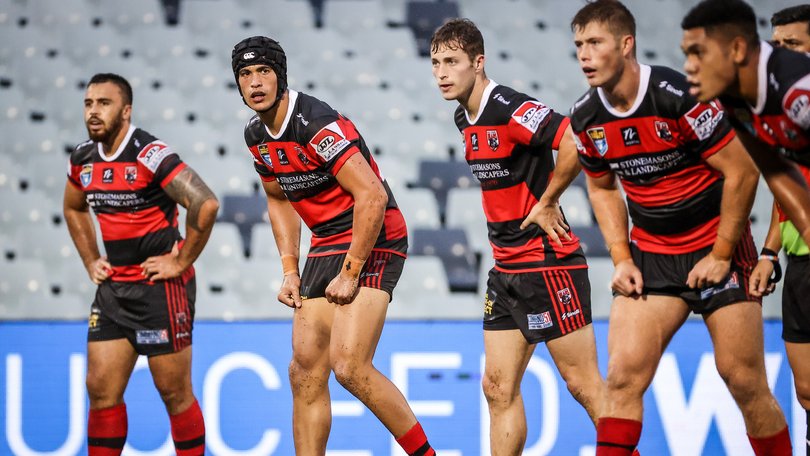Athlete Identity And The Business Of Sport

Australian athletes have been in the headlines for all the wrong reasons over the past six months and the Israel Folau social media saga has highlighted the disparity between the responsibility as an employee and that of an athlete with a brand.
The public condemnation from Folau’s religiously-motivated Instagram post has prompted Rugby AU to declare their intentions to terminate his playing contract in an effort to save a raft of sponsors cutting ties with the code.
“Whilst Israel is entitled to his religious beliefs, the way in which he has expressed these beliefs is inconsistent with the values of the sport,” Rugby Australia Chief Executive, Raelene Castle said.
“We want to make it clear that he does not speak for the game with his recent social media posts.”
Sports lawyer at DWF Australia, Mat Jessep, says people are confused about freedom of speech in Australia, perhaps largely due to the influence of US-produced media and entertainment content, where a right to free speech is enshrined in law and vigorously protected.
“It needs to be said, that there is nothing in the Australian Constitution and no federal legislation in Australia to protect the right to freedom of speech,” Jessep said.
“Everyone in Australia has the right to practice their religion free from Government control or intervention, but you don’t have the right to free speech and certainly no right to express discrimination or hate speech, which there are laws against, in fact.
“No one, Rugby Australia included, is discriminating against Israel Folau’s right to practise his religion, but that right does not include the ability to discriminate against others.
“This is best viewed as an employment issue, where an athlete is causing harm to the reputation of the sport and impacting on the ability for the sport to generate revenue, all of which the player on this occasion was warned about just last year.”
For sponsorship partners, controversies like this can negatively affect brand reputation, but for athlete management agencies, events such as these could make or break the credibility of their work, according to M5 Management founder and managing director, Philip Stoneman.
“From our point of view, we go through a lot of screening processes before we sign an athlete,” Mr Stoneman said.
“We would have dealt with the fact that Israel has very strong beliefs, we would have respected those beliefs, but we would have applied, in our contract to him, that any personal comments that have the potential to cause the uproar this particular situation has caused, would be in breach of his contract.
“Given the fact that it’s the second time, you would have thought his management would have said, ‘we can get away with this once as a mistake, but don’t forget you’re representing a code here not just an individual; let’s work our way through it, but from now on, if these types of posts come through, then you will also be breaching your contract with us’.
“They find themselves in a very difficult situation as his management group.
“As a manager, it is our responsibility to back our athlete and they’ve got to stick by his side.
“He’s losing his contracts, so they have to fight for him, in the best way they possibly can, otherwise they are not doing their jobs,” he said.
This controversy, however, is the latest in a number of scandals affecting Australian sports stars over the past decade, including Anthony Mundine, Brendan Fevola, Bernard Tomic, Ben Cousins, Todd Carney and Ben Barba.
Although this is a religious proclamation for Folau, there have been numerous cases of athletes making poor decisions in the public eye, providing incriminating evidence of indiscretions on social media, which allows the public to discuss such events and ultimately increase negative public perception and backlash.
“Professional athletes in sports leagues in Australia, will usually contract away, or assign their image and likeness rights to their employer (club), who then sub-licence those rights to the sport or code (NRL) as part of that participation agreement with the league,” Jessep said.
“The pro athlete still has the ability to contract directly with some sponsors, subject to the approval and control of the club and the league.”
“So what we are seeing, is some players not fully controlling, appreciating, or understanding the value of their brand and the negative impact that poor decisions can make, not only on their ability to earn money from sponsors but their club as well, and in some cases, as with Jack De Belin in the NRL and with Israel Folau, upon their ability to earn income from the game itself.
” I think pro sports in Australia need to follow the more sophisticated US and European models and strongly consider giving the athletes more control and responsibility over their brand.
“In that way, maybe all pro athletes will think twice about making a poor decision, or getting themselves in a questionable situation, or expressing comments that might cause controversy or backlash.”
“Ultimately, athletes are human and not everyone makes great decisions or values their commercial opportunities.
“In those cases, where some players just won’t get it, and if the sport doesn’t sanction bad behaviour, then another stakeholder will, and that’s the sponsor.”
Folau has already lost his sponsorship with luxury car brand Landrover and the NRL isn’t taking any chances, declaring they will not allow Folau to re-join the code where he started his professional sporting career, with Australian Rugby League Commission (ARLC) chairman, Peter Beattie, saying the ARLC will not support the approval of his registration to play NRL.
“Israel Folau fails the NRL’s inclusiveness culture, which is a policy strongly supported by the ARLC,” Mr Beattie said.
Israel Folau will now fight for his career after the fallen Wallabies superstar has requested his case be heard at a code of conduct hearing, which is likely to take place after Easter.
It's free to join the team!
Join the most engaged community in the Sports Business World.
Get all the latest news, insights, data, education and event updates.






